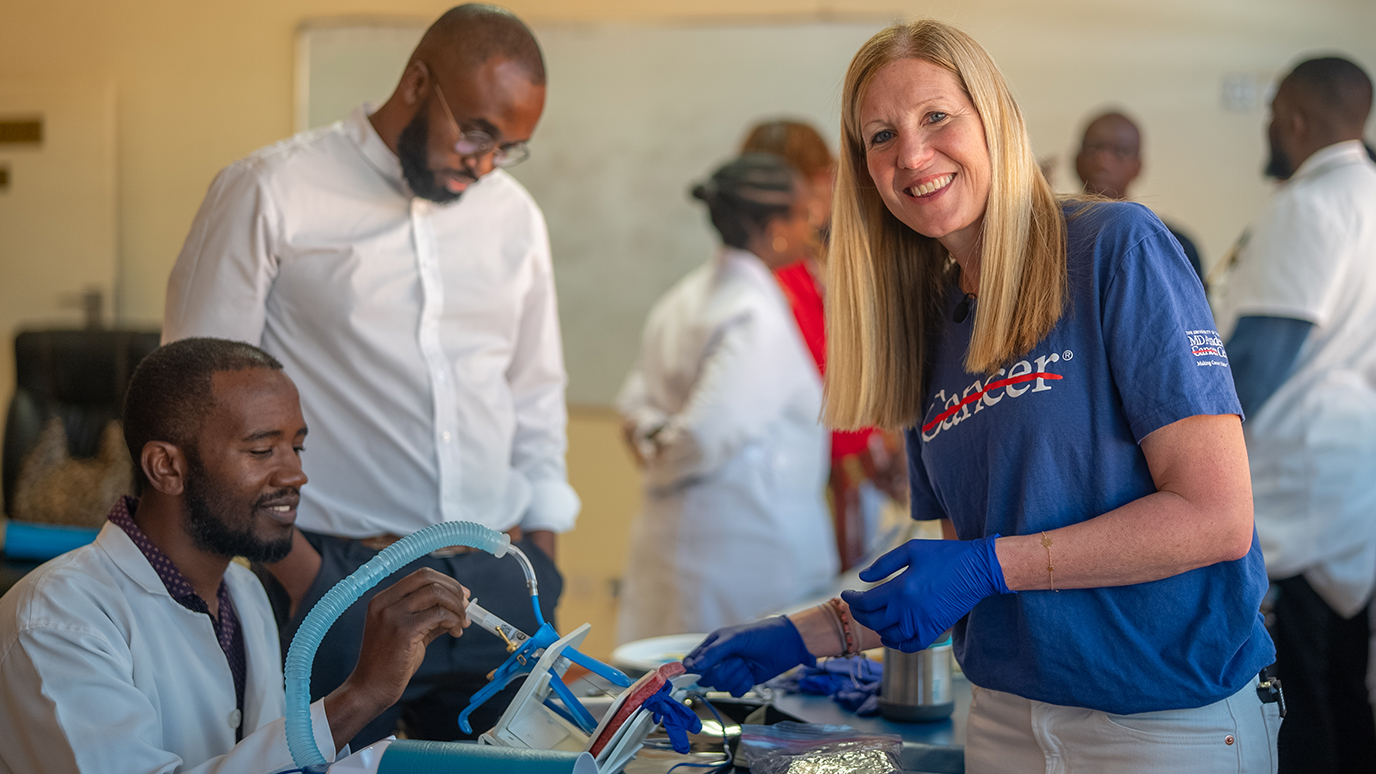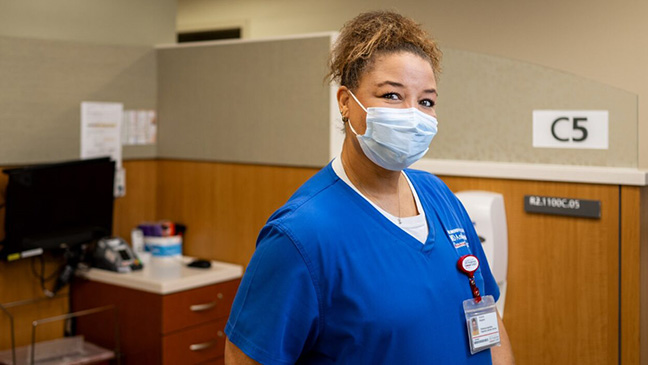- Diseases
- Acoustic Neuroma (14)
- Adrenal Gland Tumor (24)
- Anal Cancer (66)
- Anemia (2)
- Appendix Cancer (16)
- Bile Duct Cancer (28)
- Bladder Cancer (68)
- Brain Metastases (28)
- Brain Tumor (228)
- Breast Cancer (716)
- Breast Implant-Associated Anaplastic Large Cell Lymphoma (2)
- Cancer of Unknown Primary (4)
- Carcinoid Tumor (8)
- Cervical Cancer (154)
- Colon Cancer (164)
- Colorectal Cancer (110)
- Endocrine Tumor (4)
- Esophageal Cancer (42)
- Eye Cancer (36)
- Fallopian Tube Cancer (6)
- Germ Cell Tumor (4)
- Gestational Trophoblastic Disease (2)
- Head and Neck Cancer (6)
- Kidney Cancer (124)
- Leukemia (344)
- Liver Cancer (50)
- Lung Cancer (288)
- Lymphoma (284)
- Mesothelioma (14)
- Metastasis (30)
- Multiple Myeloma (98)
- Myelodysplastic Syndrome (60)
- Myeloproliferative Neoplasm (4)
- Neuroendocrine Tumors (16)
- Oral Cancer (100)
- Ovarian Cancer (170)
- Pancreatic Cancer (166)
- Parathyroid Disease (2)
- Penile Cancer (14)
- Pituitary Tumor (6)
- Prostate Cancer (144)
- Rectal Cancer (58)
- Renal Medullary Carcinoma (6)
- Salivary Gland Cancer (14)
- Sarcoma (236)
- Skin Cancer (294)
- Skull Base Tumors (56)
- Spinal Tumor (12)
- Stomach Cancer (60)
- Testicular Cancer (28)
- Throat Cancer (90)
- Thymoma (6)
- Thyroid Cancer (98)
- Tonsil Cancer (30)
- Uterine Cancer (78)
- Vaginal Cancer (14)
- Vulvar Cancer (18)
- Cancer Topic
- Adolescent and Young Adult Cancer Issues (20)
- Advance Care Planning (10)
- Biostatistics (2)
- Blood Donation (18)
- Bone Health (8)
- COVID-19 (362)
- Cancer Recurrence (120)
- Childhood Cancer Issues (120)
- Clinical Trials (624)
- Complementary Integrative Medicine (24)
- Cytogenetics (2)
- DNA Methylation (4)
- Diagnosis (230)
- Epigenetics (6)
- Fertility (62)
- Follow-up Guidelines (2)
- Health Disparities (14)
- Hereditary Cancer Syndromes (122)
- Immunology (18)
- Li-Fraumeni Syndrome (8)
- Mental Health (118)
- Molecular Diagnostics (8)
- Pain Management (62)
- Palliative Care (8)
- Pathology (10)
- Physical Therapy (18)
- Pregnancy (18)
- Prevention (892)
- Research (390)
- Second Opinion (74)
- Sexuality (16)
- Side Effects (602)
- Sleep Disorders (10)
- Stem Cell Transplantation Cellular Therapy (216)
- Support (404)
- Survivorship (322)
- Symptoms (184)
- Treatment (1770)
Driven to prevent cervical cancer worldwide
3 minute read | Published December 13, 2022
Medically Reviewed | Last reviewed by an MD Anderson Cancer Center medical professional on December 13, 2022
Kathleen Schmeler, M.D., has been focused on bringing high-quality cancer prevention, diagnosis and treatment programs to women in underserved communities since she was a medical student more than 20 years ago.
The reason? “All patients deserve access to the same high-quality cancer care,” says the executive director of Global Oncology and professor of Gynecologic Oncology & Reproductive Medicine at MD Anderson.
Improving cervical cancer screening and treatment access in the Rio Grande Valley
To better serve economically disadvantaged and uninsured patients in the Rio Grande Valley, Schmeler forged a partnership with UTHealth Houston School of Public Health in Brownsville in 2013. With the support of grants from the Cancer Prevention and Research Institute of Texas (CPRIT), she collaborates with local community clinics — including mobile health clinics — to provide free Pap and HPV tests to residents there, as well as diagnostic and treatment procedures (such as colposcopy and loop electrosurgical excision) for women with abnormal results.
“If women are screened regularly for cervical cancer and have access to adequate treatment when their tests come back abnormal, we can often avoid precancer developing into cancer,” Schmeler explains. “But women in underserved communities often have no access to screening programs and few health care providers in their area. That puts them at risk of developing advanced cervical cancer and dying. And that’s unacceptable.”
Expanded focus addresses cervical cancer rates in Mozambique
In 2014, Schmeler expanded her efforts to include Mozambique, an East African nation with some of the world's highest rates of cervical cancer.
“No one should be dying from this disease anymore,” Schmeler says. “We know now what causes it, we have the HPV vaccine to prevent it, and we have screening tests to catch it early.”
That conviction is what propelled Schmeler to collaborate with Mozambique’s Ministry of Health and dozens of colleagues from around the world. Together, they are working to increase cervical cancer screening, perform research, and train additional medical providers through hands-on experiences, as well as through Project ECHO®, a telementoring relationship between MD Anderson specialists and providers in rural and underserved communities. This unique partnership gives Mozambican women increased access to screening, treatment and participation in research studies.
“Mozambique has very few cancer specialists,” explains Schmeler. “We helped to expand their capacity significantly by assisting with the training of nurses and doctors, including the first three gynecologic oncologists in the country.”
Collaboration with the World Health Organization to address breast and cervical cancers
This fall, Schmeler’s passion and vision helped MD Anderson formally expand its international reach even further. Led by Schmeler and Sarah Berger, associate vice president of MD Anderson Cancer Network®, the institution established a new international collaboration with the World Health Organization (WHO) to advance global initiatives in women’s cancers, including breast and cervical cancers. The agreement is the culmination of more than three years of work.
“I could never have done this kind of work anywhere else,” notes Schmeler. “MD Anderson invested in me early on in my career and gave me the support I needed to share my knowledge at a broader level. To expand MD Anderson’s reach through WHO has been unbelievable. I feel very supported — not just personally, but also on a much larger scale — to do the right thing for women everywhere.”

I never could have done this kind of work anywhere else.
Kathleen Schmeler, M.D.
Physician





